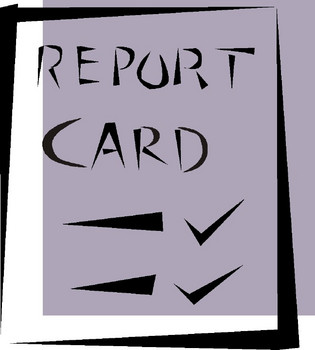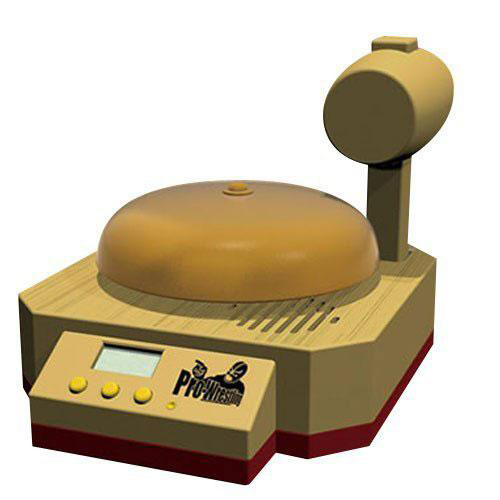I’ve written previously about the importance of having a good referee in a match (I’m with the Show). They can make or break it for the wrestlers and the fans.
For the last three or four years, I have been working as referee for Minnesota Independent Wrestling (MIW) when they run shows at the American Legion in Chanhassen, MN. MIW is the promotion of one of my wrestling trainers, Terry Fox, and a long time wrestling friend and fan-turned-promoter Tim Larson. Followers of the local wrestling scene in the late ’90s will recognize Tim as the author of the Upper Midwest Wrestling Newsletter. He created 236 issues ending in April of 2002. I have the full archive on my site at this link: UMWN Archive.
I recently ran across an article by referee Jason Iannone that went a little more “behind the curtain” than I was willing to go in some of my previous postings. But, as I wrote in another posting called My Wrestling NDA, I’m more likely to talk about it if someone else reveals it first.
Take a few minutes to read his article and then I have a few follow-up comments on: Things Your Local Pro Wrestling Referee Wants You To Know
I pulled out a few quotes below and added my take.
But we’re pretty much the glue that holds the matches together. Having a referee there to oversee the action makes it look like a legitimate contest.
Yep. I’ve wrestled hundreds of matches in training camp, some without a referee or with an untrained referee. It just doesn’t work. It’s like watching a movie with the sound turned off. You can kind of follow what’s happening but part of the story is missing.
At our best, we act like the action is real, and officiate accordingly. Yes, we know who’s winning. And yes, we know about certain things planned beforehand […]. But, for the most part, we just call what we see, and treat it as realistically as possible, in the hopes that the audience feels the same way.
It only works well if you treat it as a serious contest, where the winner will either get more money as a result, or move up the ladder to get a shot at a title at some future date (our version of the playoffs). You need to treat it like making a wrong call or not enforcing the rules on both contestants equally could cost someone a shot at success. “Call what you see” also implies that you “don’t call what you don’t see” so that you don’t violate the rule above. In other words, if the heel hits the babyface with his nightstick, but we don’t want a disqualification, then I can’t see it. If I don’t see it, I don’t have the issue of not calling it like a serious contest.
However, there are situation where things don’t go as smoothly, as Jason mentions…
[I]f we have to disqualify somebody who was scheduled to win, because they wouldn’t stop choking their opponent, then so be it.
You want to have the match end as expected to make the promoter happy. At least a few of the wrestling promotions in the area have “seasons” where they run at a regular venue from September to May (or there abouts) and take the summers off. They usually plan out storylines to build up until the end of the season and then give some reason why people should come back again in the fall. Screwing that up for them is a bad idea.
However, this is only trumped by the rule that the referee needs to officiate like it is a serious legitimate contest. Nothing would look worse than a referee stopping at a two count if the wrestler being pinned did not kick out. Or getting to a five count on some rule violation and not disqualifying the violator. If a wrestler doesn’t lift their shoulder by the count of three, you still need to count three and end the match. If they don’t stop choking by a five count, you need to disqualify them and end the match. In these cases, the heat will be on them and not the referee (from the promoter’s perspective at least). You didn’t give me a choice. But as a ref, you’d better be damn sure it’s not your fault before you make the call. If he didn’t lift his shoulder on time, you’d better be sure he didn’t put his foot on the rope instead. Making contact with the ropes breaks the pin attempt, but many referees don’t think to check that.
This made me think back to a match between Dean Malenko and David Sammartino that aired on a live national WCW broadcast. I did a search and found a video. It was for the WCW Cruiserweight title (Malenko was the champ). Notice that the clip is only five minutes long. Considering it took them a minute and a half to get in the ring, and thirty seconds to walk back after the match, that means there was only three minutes of wrestling. For a nationally televised title match. The referee was one of the best referees of all time, the late great Mark Curtis. At the 4:30 mark, Sammartino didn’t get his shoulders up and Curtis had to count to three. No other choice. I’m sure they were planning to put in at least 10 mins, but that didn’t matter.
Dean Malenko vs David Sammartino-WCW… by TSteck160
The one area I’ll bend a little bit on this is with a ten count violation. If both wrestlers are outside the ring and I get to nine, I’ll go outside and tell them to get back in. I don’t see both of them being out of the ring longer as a violation that would legitimately change the outcome of the match (in the way allowing one wrestler to continue to choke the other one might be). However, if one of them gets back in and the other doesn’t make the 10 count, it’s over.
The best refs, besides being properly stupid and half-blind, are experts at not getting involved, and letting the crowd concentrate on the wrestlers. As I heard so often when training, “the best referees are the ones you never notice.â€
This was brought home in a conversation I had a year or two ago with ring veteran Horace The Psychopath. He said, “Did you referee my match at the last show?” I said I did. He said, “That tells me you must have done a good job, because I don’t remember. You got out of the way when you were supposed to. You got involved when you were supposed to… I only remember the ones who screwed up.”
I remember that he also wanted me to “point out the pretty girls” to him during the match (discretely of course), but I don’t think I did that. He must have forgotten that part. I still have to concentrate enough on what I’m doing that I can only take in “distractions” before or after the match.
When I wrestled, I expected people to boo me when I came out as a heel. I was hiding behind my wrestling persona and my goal was to get them to boo. When I was working as a “good guy” and people booed instead of cheered, it bothered me because I felt I wasn’t doing my job, not because I felt anything personal. But when I started working as a referee for MIW (using my real name) and they booed, it was a little hard to get used to. It felt like they were booing me personally, rather than my character, because I don’t know if I really have a character when I’m working as a referee. I feel like I’m being myself. The thing to remember is they aren’t being themselves. They’re doing it because that’s part of their enjoyment, not because they have anything against you personally. Some of them still come up to you and talk, or buy you a drink, after the matches.
So the next time you’re out at a pro wrestling show, take a few minutes to watch the ref and see how he (or she) alternates between the invisible man and the voice of authority.




Recent Comments